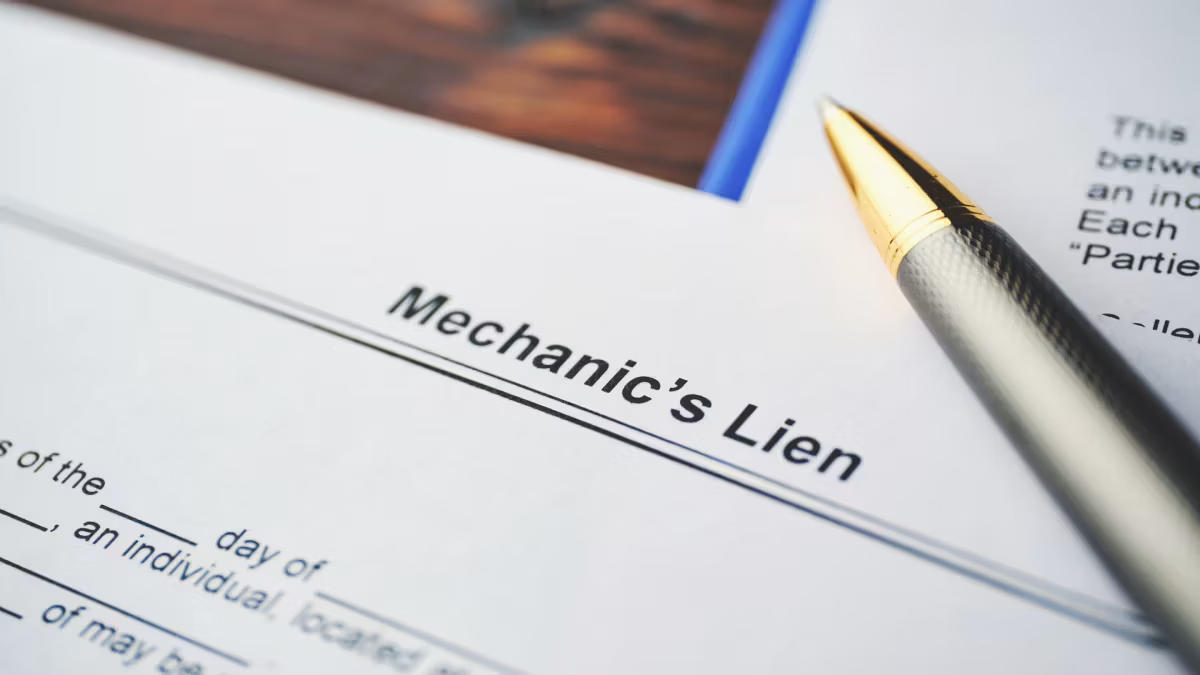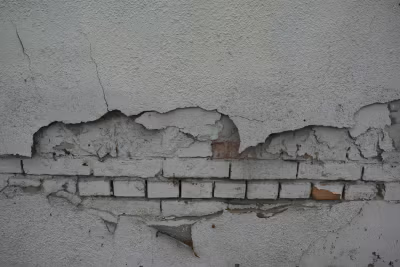Payment Disputes & Mechanic's Liens

When you hire a contractor or remodeler, you expect sound work, clear pricing, and honest billing. Too often, homeowners discover that promises and performance don’t match—and then face a mechanic’s lien demanding more money. At Hollington Law Firm, we represent Colorado homeowners in payment disputes and lien matters. Our work centers on protecting your title, preventing double payment, and enforcing Colorado’s lien and trust-fund laws so you can resolve the project and move forward.
Colorado’s Mechanic’s Lien Framework (C.R.S. § 38-22-101, et seq.)
Colorado’s statute allows contractors, subcontractors, and suppliers to claim a lien against property for unpaid labor or materials. The law is strictly construed. That means the claimant must follow every procedural step—service of notices, recording within the statutory windows, and timely enforcement—or the lien fails. The purpose is to protect legitimate payment rights without allowing liens to become leverage for poor, incomplete, or unpermitted work.
Notice, Recording, Extensions, and Enforcement
Before a lien can be recorded, the claimant must serve a Notice of Intent to Record Lien Statement on both the owner and the prime contractor at least ten days in advance. Colorado law permits personal service or certified mail and requires accuracy in recipients and addresses. If you never received proper notice, the lien is defective from the outset. After that ten-day period, the claimant may record a Lien Statement with the county clerk. Day laborers must record within two months after their last day of work; all other claimants have four months from the last labor or materials furnished. Miss the deadline and the lien right is lost.
The statute permits a temporary extension by recording a Notice Extending Time to File a Lien Statement. That notice has its own clock: it automatically terminates six months after filing unless the project reaches completion earlier, and the statute limits how and when the window can be renewed. Even when recorded on time, a lien must be foreclosed in court no later than six months after the last labor or materials; otherwise, it expires. These sequences—notice, recording, extension, and foreclosure—matter. Many liens fall apart because one of these steps was skipped, late, or served incorrectly.
Common Homeowner Defenses
Homeowners have several powerful defenses. Untimely or procedurally defective liens are unenforceable because Colorado courts require strict compliance with the statute. Liens inflated beyond what is reasonably due invite additional consequences: under C.R.S. § 38-22-128, a claimant who knowingly files an excessive lien can forfeit all lien rights and be ordered to pay the owner’s fees and costs. Single-family owners have an additional protection. If you paid your general contractor in full for work that subs later claim was unpaid, C.R.S. § 38-22-102(3.5) recognizes an affirmative defense that prevents you from paying twice for the same work.
Quality and legality of work also matter. Contractors who perform unlicensed or unpermitted work may be barred from lien recovery, and serious defects or abandoned projects undermine claims for full compensation. These facts frequently pair with counterclaims for breach of contract, negligence, or misrepresentation when a claimant uses a lien to pressure payment despite defective performance.
Trust-Fund Protection and Misused Payments
Colorado’s Construction Trust Fund Statute (C.R.S. § 38-22-127) requires contractors to hold owner payments in trust for subcontractors, laborers, and suppliers. Those funds are not a slush account to float other jobs or personal expenses. Misuse can constitute civil theft with exposure to treble damages and attorney’s fees under C.R.S. § 18-4-405. For homeowners, the trust-fund regime is essential: if you paid the contractor but a sub still recorded a lien, the correct target is often the contractor who diverted funds, not the homeowner who already paid in good faith. We use the trust-fund statute to unwind double-payment pressure, recover misused money, and clear title.
If a Lien Hits Your Title
Start with documents. Obtain the recorded lien and the claimant’s notices, your written contract, change orders, invoices, proof of payment, and any permit or inspection records. Check timing immediately; the notice and recording dates often make or break a lien. Do not ignore correspondence from title companies or lenders; a recorded lien clouds title and can derail a refinance or sale. In many cases we can bond around the lien, substituting a surety bond for the property so your title is free while the dispute is resolved. Parallel to that, we evaluate statutory defects, challenge excessive amounts, assert full-payment protections, and, when warranted, bring trust-fund and civil-theft claims.
Lien Foreclosure and Litigation Posture
If the claimant files a foreclosure action within the statutory window, the case moves to court. Our response is both procedural and substantive. We seek dismissal for missed deadlines or defective notices and press counterclaims where the underlying work is incomplete, unpermitted, or defective. Courts have authority to discharge invalid liens and award fees to prevailing owners. Where facts are disputed but liability is thin, we pursue targeted discovery (payment ledgers, permit histories, subcontractor releases, and communications) to document strict-compliance failures and overstatement of sums due.
Practical Resolution of Payment Disputes
Not every dispute belongs in a prolonged lawsuit. Many lien fights stem from change-order confusion, scope creep, or quality disagreements. We focus on clear scopes and code-compliant repair plans, verified by independent experts when needed. That clear record—who owes what, for which items, and why—enables practical settlements that reflect the real value of work performed and protect the homeowner from overpayment.
How Hollington Law Firm Protects Homeowners
Our approach is straightforward: protect the title, enforce the statute, and resolve the dispute on fair terms. We review and attack statutory defects; clear title through court order or bonding; negotiate balanced resolutions for legitimate, properly documented work; and pursue trust-fund and fraud remedies when contractors misuse owner payments. Throughout, you receive clear explanations of options, expected timelines, and costs so you can make informed decisions without pressure.
When to Call
Call as soon as you receive a Notice of Intent to Lien—or the moment you learn a lien has been recorded. Early involvement preserves defenses, expands options for bonding or negotiated releases, and often avoids litigation. If you are facing a lien, threatened lien, or escalating payment demands, Hollington Law Firm can help you understand your rights, protect your home, and reach a durable resolution.
Have Questions About Your Case?
Schedule a free 15-minute screening call to discuss your construction defect or property damage claim with our experienced attorneys.


